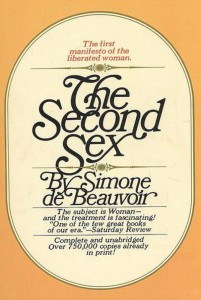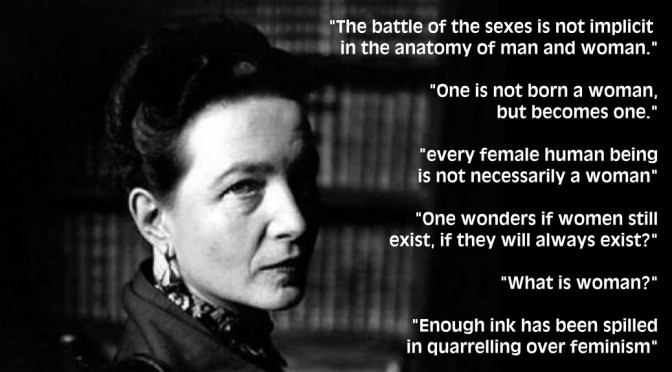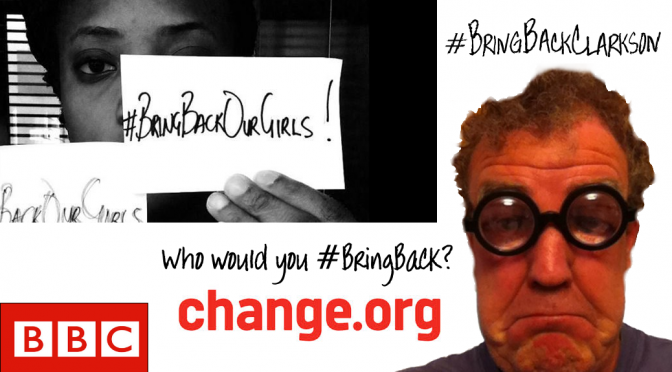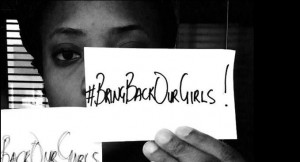Simone de Beauvoir, Sex-Positive Feminist, d.1986

It’s a generation since the death of author, feminist, and existentialist, Simone de Beauvoir on 14 April 1986. A lover of Sartre – in both senses of the word, she was a sexually liberated bisexual whose disregard for sexual convention – including age of consent laws, caused her to lose her right to teach in France. Her 1949 defining work on the oppression of women, Le Deuxième Sexe – “The Second Sex“, is widely considered a groundbreaking treatise on sex and gender for 20th-century feminism.
As to her sexual liberation, her “erotic liberty“, and open relationship with Jean-Paul Sartre, she saw any sexual categorisation as restrictive:
“In itself, homosexuality is as limiting as heterosexuality: the ideal should be to be capable of loving a woman or a man; either, a human being, without feeling fear, restraint, or obligation.” – Simone de Beauvoir
Simone de Beauvoir Quotes
I recently quoted, knowingly totally out of context, this from de Beauvoir:
“One is not born a woman, but becomes one.”
I was quite promptly, and perhaps rightly, accused of ‘quote mining’. Contextomy or the unjustified use of an uprooted, and in this case anachronous, quote, to prove a point it was never intended to address, is a fair criticism.
My use of the quote was because it resonated with the idea that people can be born female, raised a girl, but become a woman. A woman is as much experience, as nature. I’m not jumping in and suggesting, for example, that post-operative trans women are thus women, the same as those who were born with a uterus and raised as girls. Indeed, is anyone any less of a woman after uterine cancer (affecting 8,500 women in the UK a year) and removal of the womb via hysterectomy? Similarly, women can have various difficulties in reproduction due to infertility, or any number of intersex medical differences that may cause an XX or indeed other chromosomal combination such as XXY etc to present a body that defies the defined binary female stereotype. Women should not be defined by their ability to procreate and bear children – that much I am sure de Beauvoir would agree with.
My question is, though, whether de Beauvoir would have condemned or supported the rights of some to pursue a gender trajectory that more matches their inner feelings and psyche than their binary-born bodies. In other words, transgender, non-binary and other forms of gender fluidity or transition.
Simone de Beauvoir on Woman, Femininity, the Other, and maybe a Third Sex

So to add insult to injury, to compound my contextomy crime, here are some further Beauvoirisms that might shed light on what might have been her attitude to “The Third Sex”. A phrase which I use, advisedly, for the main purpose of echoing her “Second Sex”, rather than for the purpose of defining all trans and/or gender non-conforming people as a “Third Sex” even though that is a way which some, especially in Asian and Indian cultures, do define.
Does ‘Woman’ even exist?
Beauvoir existentially questioned whether woman would always exist, suggesting that ‘she’ is an ephemeral concept ,driven by culture and construct as much as conception:
“Are there women, really? Most assuredly the theory of the eternal feminine still has its adherents who will whisper in your ear: ‘Even in Russia women still are women’; and other erudite persons – sometimes the very same – say with a sigh: ‘Woman is losing her way, woman is lost.’ One wonders if women still exist, if they will always exist, whether or not it is desirable that they should…” – The Second Sex, introduction (1949)
One can be female but not a woman
As to femininity, she saw it as something esoteric, and that female ≠ woman ≠ femininity:
“It would appear, then, that every female human being is not necessarily a woman; to be so considered she must share in that mysterious and threatened reality known as femininity. Is this attribute something secreted by the ovaries? Or is it a Platonic essence, a product of the philosophic imagination?” – The Second Sex, introduction (1949)
If female equals the “female of the species” reproductively, and feminine a cultural construct if not oppression, then woman need not be feminine and feminism a path to throwing off that oppression. But does ‘woman’ need to be female? If one can be female but not a woman, can one be woman but not a female?
What is woman?
If much previous philosophical, and biblical-theological enquiry, stemmed around “What is man?” and the nature of man, then de Beauvoir helpfully examines, what is woman:
If her functioning as a female is not enough to define woman, if we decline also to explain her through ‘the eternal feminine’, and if nevertheless we admit, provisionally, that women do exist, then we must face the question “what is a woman”?
Yet would it not be more helpful to discuss what it means to be human, or are we still stuck seeing woman as something less than a man, and hence neither equal nor fully human since, as in the Bible, Adam stands for man and humankind as the first point of reference?
“Thus humanity is male and man defines woman not in herself but as relative to him” – The Second Sex, introduction (1949)
On BBC Woman’s Hour today, British Army Captain Rosie Hamilton was interviewed about how female recruits are trained, but it was then made all about how many of them made the ‘male’ standard.
Woman as the ‘Other’
Beauvoir rebelled against the patriarchal concept that man is human and woman is defined only in relation to being man’s so-called opposite pole, that she is ‘othered’ in reference to him. Not that we have achieved gender parity yet, but I wonder how she would see trans, non-binary, intersex people now, as perhaps the new (however ancient a group of people they are) ‘other’?
“No subject will readily volunteer to become the object, the inessential; it is not the Other who, in defining himself as the Other, establishes the One. The Other is posed as such by the One in defining himself as the One.” – The Second Sex, introduction (1949)
Trans, Non-Binary and Intersex people are ‘othered’ by the default biologically and socially essentialist binary. In the same way, de Beauvoir saw woman as othered by man. Thus, gender non-conforming people, whether assigned male or female at birth, should have some solidarity with the feminist struggle to assert the equality of women with men, and their common core identity as human beings absolutely, not relatively. Sadly, that is not always the case and some folk do not see a common struggle between feminism and gender identity. As de Beauvoir said:
“Enough ink has been spilled in quarrelling over feminism” – The Second Sex, introduction (1949)
Some radical feminists, such as Julie Bindel, Germaine Greer, Sheila Jeffries and others, are well known for exclusionary attitudes to trans people. Indeed, de Beauvoir others intersex people, formerly termed ‘hermaphrodite’, in her seeking to find an independent voice on ‘what is woman?’:
“What we need is an angel – neither man nor woman – but where shall we find one? Still, the angel would be poorly qualified to speak, for an angel is ignorant of all the basic facts involved in the problem. With a hermaphrodite we should be no better off, for here the situation is most peculiar; the hermaphrodite is not really the combination of a whole man and a whole woman, but consists of parts of each and thus is neither.” – The Second Sex, introduction (1949)
In a 1976 interview, when asked about excluding men from some aspects of the feminist struggle and female gatherings, she opined that sometimes it was necessary. So she may have argued against the full and unfettered access of some transwomen (e.g., pre-operative) to women-only safe spaces. She did also say, however:
“The battle of the sexes is not implicit in the anatomy of man and woman.” – The Second Sex, conclusion (1949)
Similarly, she spoke of some lesbian women, in particular, being male-exclusionary:
“There are other women who have become lesbian out of a sort of political commitment: that is, they feel that it is a political act to be lesbian, the equivalent somewhat within the sex struggle of the black power advocates within the racial struggle. And, true, these women tend to be more dogmatic about the exclusion of men from their struggle.” – interview (1976)
Anyone, who is oppressed has the right to gather in safe spaces – whether other oppressed minorities should have rights of access to the safe spaces of other groups who have been ‘othered’ is another matter. That siad, shared oppression is sometimes more important than shared hormones.
“Woman is determined not by her hormones or by mysterious instincts, but by the manner in which her body and her relation to the world are modified through the action of others than herself.” – The Second Sex, conclusion (1949)
It was Audre Lorde that said, whilst “any woman is not free”, then “no woman is”. Being the one oppressed is sadly part of a common humanity, and a common responsibility:
“Each of us is responsible – to every human being.” – Simone de Beauvoir
In some matters, if not most – except the most basic biological differences, “men and women” and anyone that is defined or identified outside that binary need to” unequivocally affirm their brotherhood”, as de Beauvoir concluded in The Second Sex.
So, could every Human be a Woman?
“I wish that every human life might be pure transparent freedom.”
Beauvoir speaks of every human being, every human life, less of the categorisation that in a class-distinctive way oppresses all of us, even the men. For, in defining men and not women, as not soft or empathic, or similar stereotypes, we trap them in conventional masculinity, we oppress gay men, drag queens and transvestites who may still identify as male.
“…man, like woman, is flesh, therefore passive, the plaything of his hormones and of the species, the restless prey of his desires.” – The Second Sex, conclusion (1949)
We no longer accept feminism as the sole regard of women. True women’s liberation also liberates men from roles and rules of sex and gender.
“…the woman of today is [not] a creation of nature; it must be repeated once more that in human society nothing is natural and that woman, like much else, is a product elaborated by civilisation.” – The Second Sex, conclusion (1949)
If a feminist need not be a woman, and a female need not be a ‘woman’, and the ‘feminine’ just as possessable by males, then, perhaps too, a ‘woman’ need not be female, at least not assigned one at birth. In other words, is the very term ‘woman’ as much a social construct as gender itself, and the so-called masculine and feminine ideals?
“No single educator could fashion a female human being today who would be the exact homologue of the male human being; if she is brought up like a boy, the young girl feels she is an oddity and thereby she is given a new kind of sex specification.” – The Second Sex, conclusion (1949)
Only in an androgynous (but not uniform) utopia, where all human beings were raised without class or gender specificity, could true equality perhaps be found.






